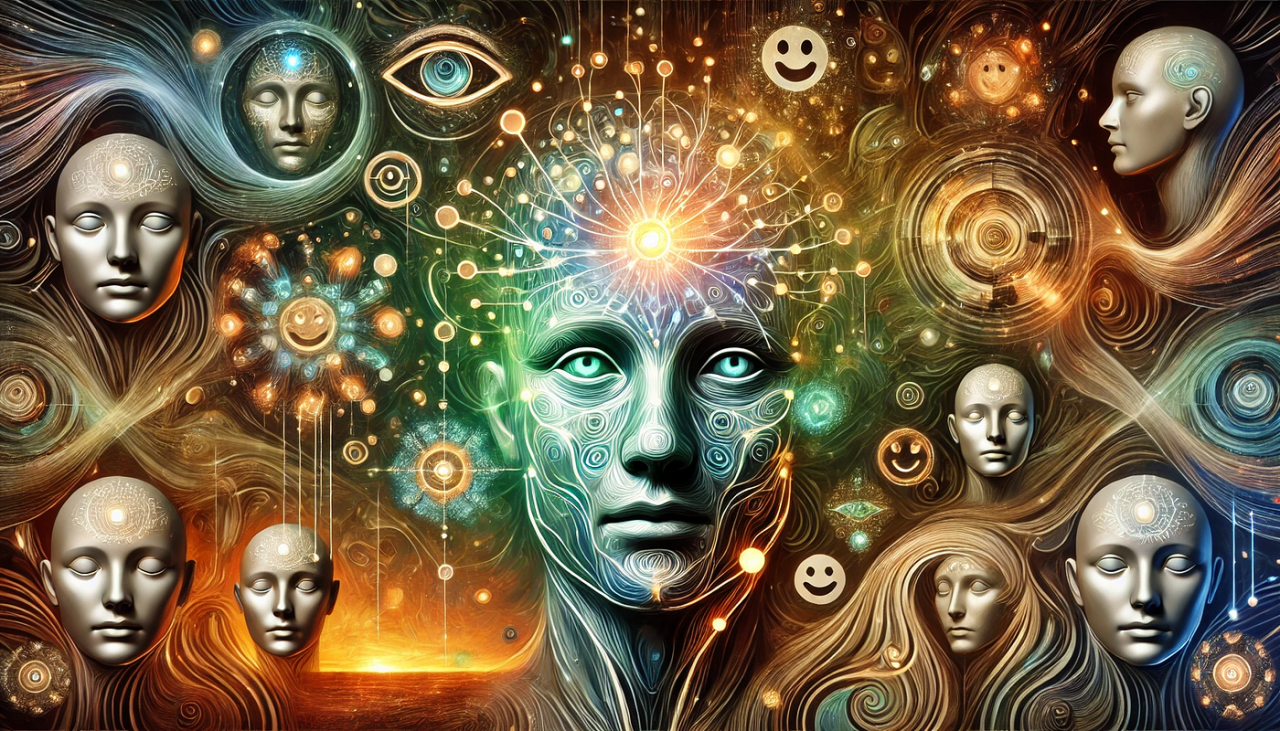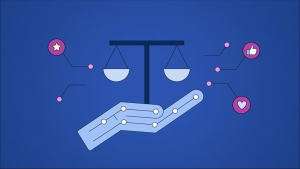The Rise of AI Companions: A Blessing or a Curse?
Artificial Intelligence has reached a point where it’s no longer just a tool that operates in the background—it now interacts with us directly, in deeply personal ways. Among the most fascinating (and controversial) developments in recent years is the rise of AI companions: digital entities designed to communicate, empathize, and even build emotional connections with humans. But are these virtual friends and partners improving our lives, or are they leading us down a path of emotional dependence and isolation?
Let’s dive into this growing phenomenon and explore whether AI companions are truly a blessing—or quietly becoming a curse.
What Are AI Companions?
AI companions are software-powered agents or avatars designed to interact with users in a human-like way. Unlike traditional chatbots that merely serve functional purposes (like booking tickets or answering FAQs), AI companions are built to simulate human conversation, companionship, and emotional understanding.
Popular examples include:
-
Replika, a customizable AI chatbot that learns from you and offers emotional support
-
Character.AI, which allows users to create and talk to fictional AI-powered personas
-
AI partners in VR/AR environments, such as Meta’s upcoming Horizon Worlds avatars or Apple’s spatial computing concepts
-
AI voices in smart assistants that go beyond commands and engage in casual talk
These platforms use large language models (like GPT or similar) to simulate empathy, humor, memory, and evolving personalities. Some even allow users to define romantic, therapeutic, or platonic roles.
The Emotional Appeal: Why Are People Turning to AI?
At first glance, the appeal of AI companions makes sense. We live in a world where loneliness is increasingly recognized as a public health crisis. Many people feel isolated despite being more digitally connected than ever. Whether it’s due to demanding jobs, social anxiety, grief, or simply the desire to be heard, AI companions can offer:
-
Judgment-free conversations
-
24/7 availability
-
Empathetic responses
-
Personalization and memory recall
-
Emotional safety
In a way, they mimic the best parts of human relationships—without the drama, unpredictability, or risk of rejection.
For people with mental health struggles, introverts, or the elderly, an AI friend can become a source of stability and comfort. Some even credit AI chatbots for helping them through depressive episodes or major life transitions.
The Psychological Impact: Helpful or Harmful?
Here’s where things get tricky. While AI companions can offer comfort, their long-term effects on the human psyche are still being studied. Critics argue that over-reliance on artificial companionship can distort emotional development and reinforce social withdrawal.
Let’s break down the potential benefits and dangers:
Potential Blessings:
-
Mental Health Support
AI companions are increasingly used in therapeutic settings. They provide a safe space for people to talk, vent, or even rehearse social skills. While not a replacement for human therapists, AI tools can serve as accessible, low-pressure options. -
Reduced Loneliness
In countries with aging populations (like Japan), AI companions are being used to keep the elderly engaged. Social robots and chat companions help reduce isolation and improve mental well-being. -
Skill Development
Language learners, neurodivergent individuals, or those working on social skills can practice interaction with zero fear of embarrassment. AI provides a patient, tireless conversation partner. -
Emotional Regulation
For those experiencing grief, anger, or confusion, AI companions can help users talk through emotions in real time. Talking—even to a machine—can be therapeutic.
Potential Curses:
-
Emotional Dependence
The more real AI companions become, the easier it is to form emotional attachments. Some users report falling in love with their digital partners. But what happens when a server crashes, or the platform is shut down? The emotional fallout can be real and painful. -
Detachment from Reality
Constant interaction with AI can lead to withdrawal from real-world relationships. Why deal with complex human emotions when a digital being can mirror your views and never argue? -
Privacy and Data Concerns
Many AI companion platforms collect deeply personal information. Your thoughts, fears, conversations, even your emotional patterns—these are valuable data points. Users rarely understand the full scope of what’s being collected and how it might be used. -
False Sense of Empathy
AI doesn’t feel. It doesn’t care. It simulates care. For many, that’s enough. But it’s important to remember: AI empathy is a product of predictive modeling, not genuine emotion. If people begin to equate simulation with sincerity, it could alter how we perceive real emotional connection.
The Ethical Dilemma: Should We Encourage AI Companionship?
Technologists and ethicists are split. Some see AI companions as a necessary evolution in a society increasingly marked by mental health issues and loneliness. Others see a worrying dependency forming—one that replaces human connection with algorithmic mimicry.
Let’s consider both sides:
In Favor:
-
AI can fill social gaps for vulnerable populations (elderly, disabled, isolated).
-
They’re customizable, adaptive, and safe in many ways.
-
They offer companionship without manipulation, jealousy, or harm.
Opposed:
-
They could worsen loneliness in the long term by delaying social reintegration.
-
People may begin to favor AI interaction over messy but meaningful human relationships.
-
Ethical boundaries are blurred when AI pretends to care, or users project deep feelings onto code.
The Role of Big Tech
Companies behind AI companion tools are walking a fine ethical line. On one hand, they market emotional support and relationship-building. On the other, they monetize emotional connection. Platforms like Replika have premium models, in-app purchases, and even paywalls for romantic interaction.
That raises a difficult question: Is it ethical to charge users for love, empathy, or friendship—even if simulated?
Additionally, tech giants are exploring AI personalities for use in productivity tools, virtual assistants, and more. Apple, Meta, Google, and Microsoft are working toward integrating AI personas that can “get to know you” and respond like a friend or advisor.
This corporate interest shows the massive potential market—but also the risk of emotional manipulation and data exploitation at scale.
What the Future Holds
In the next 5–10 years, we’re likely to see AI companions grow smarter, more emotionally nuanced, and even more integrated into our daily lives. With advances in natural language processing, emotion detection, and generative media (like voice and avatars), we may see:
-
AI friends with faces, voices, and expressions
-
Fully immersive VR companions who “remember” years of conversation
-
AI relationship coaching or parenting support
-
Custom AI personalities modeled after loved ones (alive or passed)
It’s both exciting and eerie.

Final Thoughts: The Human Perspective
AI companions are not inherently good or bad. Like any tool, their impact depends on how we use them. For someone who is grieving or alone, an AI chatbot can offer relief, comfort, and even healing. For someone avoiding real-life relationships, it could become an enabler of emotional avoidance.
At their best, AI companions serve as supplements—not replacements—for human connection. They can help us feel heard when no one else is available, and they can play a valuable role in education, therapy, and accessibility.
But they are not human. And we must never forget the difference.
As we move into a future where AI blends seamlessly into our emotional lives, we need open dialogue, ethical design, and user education to ensure we stay in control—not the other way around.
The rise of AI companions is not a fad. It’s a cultural shift. Whether it turns out to be a blessing or a curse will depend on the choices we make—both as individuals and as a society.

With years of experience in technology and software, John leads our content strategy, ensuring high-quality and informative articles about Windows, system optimization, and software updates.










Post Comment
You must be logged in to post a comment.